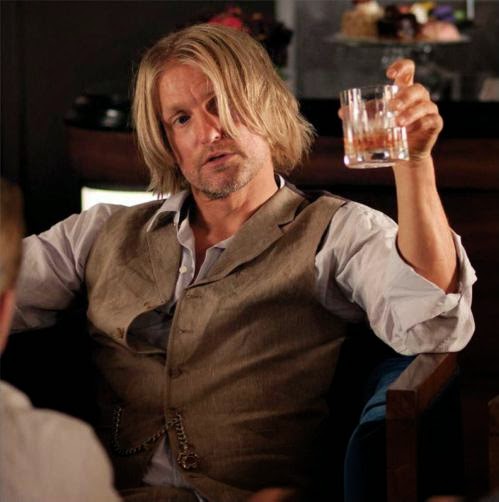
The World of the Hunger Games is set within what seems to be a post-apocalyptic realm in North America, where a centralized, highly-oppressive government grips it's people- the people of the Districts- within it's iron fist.
In a sense, this should seem or feel familiar, yes?
The element is Dystopia. That is basically the polar opposite of utopia, where human depression, enslavement, and rigid control are emphasized over free thought, quality of life for all, and happiness over order. The Capitol government is what represents this overbearing leadership, and at it's head, President Snow, creating an almost Big Brother-ish feel.
There is a heavy haze created in the book which hangs low over the characters' heads, where the mere mention of anything outside of a certain boundary could lead to death, if worse, the nightmare of being trapped within the Hunger Games for the rest of their lives.
As Haymitch always said: "You never win the Hunger Games."
It would take an arrow-through-the-force-field-with-lightning-and-blow-everything-the-crap-up epic in order to break free of the regime. I mean, come on. If you wanted to leave Panem, where would you go? No other place existed in the time of this novel.
Especially as seen within the book Catching Fire, President definately gives the appearance of Big Brother, seeing as he was able to watch almost every move Katniss made, in public
and in private. Spooky, huh?
One would not want to live in this world due to the power of the Capitol, but that is the point. It is a dystopia!
Even moreso, this seems to be supported by Tom Henthorne, someone who analyzed the Hunger Games series. He notes on how there is a lack of information on how Katniss, the voice of the story, has almost no clue about the true history of the Capitol and of Panem overall. On top of that, the reality that Katniss faces in Panem causes her to reject the idea of bringing any children into the world, so she may not subject any more human beings to the living torture that she faces.
Apart from Katniss, Henthorne mentions something crucial: the ability of the mass media to control others. This is done primarily through the televising of the Hunger Games. That gives people something to hope for, for the glory and prizes of their district to win, rather than the emptiness to focus on and think about their overall welfare, and how unjust it is.






















